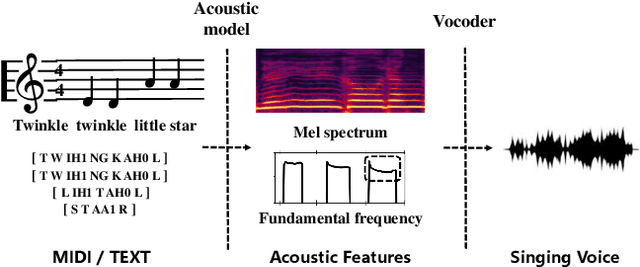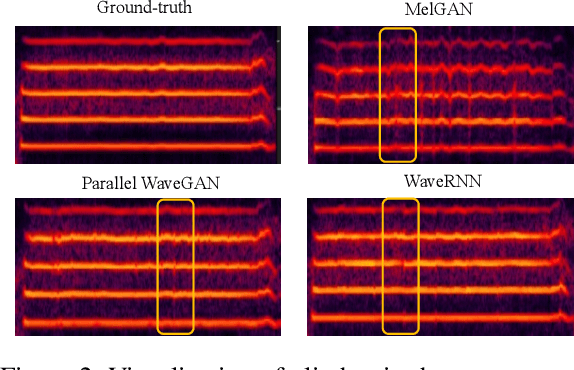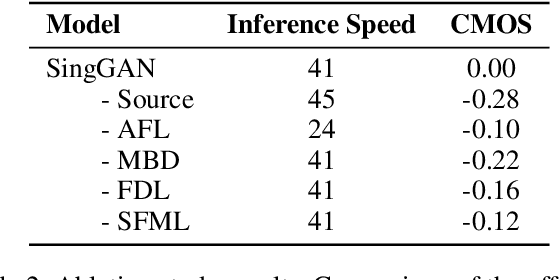SingGAN: Generative Adversarial Network For High-Fidelity Singing Voice Generation
Paper and Code
Oct 26, 2021



High-fidelity singing voice synthesis is challenging for neural vocoders due to extremely long continuous pronunciation, high sampling rate and strong expressiveness. Existing neural vocoders designed for text-to-speech cannot directly be applied to singing voice synthesis because they result in glitches in the generated spectrogram and poor high-frequency reconstruction. To tackle the difficulty of singing modeling, in this paper, we propose SingGAN, a singing voice vocoder with generative adversarial network. Specifically, 1) SingGAN uses source excitation to alleviate the glitch problem in the spectrogram; and 2) SingGAN adopts multi-band discriminators and introduces frequency-domain loss and sub-band feature matching loss to supervise high-frequency reconstruction. To our knowledge, SingGAN is the first vocoder designed towards high-fidelity multi-speaker singing voice synthesis. Experimental results show that SingGAN synthesizes singing voices with much higher quality (0.41 MOS gains) over the previous method. Further experiments show that combined with FastSpeech~2 as an acoustic model, SingGAN achieves high robustness in the singing voice synthesis pipeline and also performs well in speech synthesis.
 Add to Chrome
Add to Chrome Add to Firefox
Add to Firefox Add to Edge
Add to Edge